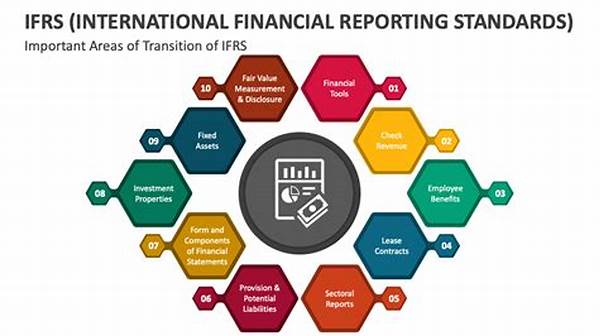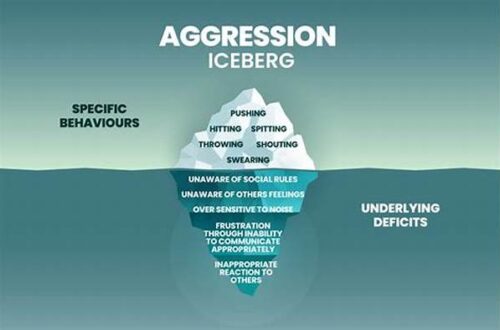The domain of financial reporting in military sectors is diverse, intricate, and demands the highest levels of accuracy and transparency. Given the paramount significance of military operations, both domestically and abroad, there is an inherent need for stringent regulations and protocols to ensure fiscal responsibility and accountability. Effective financial reporting facilitates the judicious allocation of resources while bolstering trust between military institutions and the public. Despite its critical importance, financial reporting in military sectors faces unique challenges, including the need to balance transparency with national security considerations.
Challenges in Financial Reporting
Financial reporting in military sectors often grapples with numerous challenges that must be addressed to ensure efficiency and compliance. Limited accessibility to sensitive information is a primary obstacle, given the need to protect national security interests. Furthermore, the diversity and complexity of military operations require a broad spectrum of financial reporting tools and methodologies. As military activities encompass various domains, from cybersecurity to logistics, financial reporting must adapt to a wide array of functional requirements. To aid in this endeavor, integrating technology plays a pivotal role. Automation and advanced analytics can significantly enhance accuracy and expedite reporting processes. Additionally, maintaining alignment with international standards is necessary as military operations frequently involve collaboration with allied forces. Therefore, constant vigilance and improvement in reporting practices become imperative to meet evolving challenges while upholding transparency and accountability.
Regulatory Framework and Standards
1. The regulatory framework governing financial reporting in military sectors is robust, involving complex statutes and guidelines to ensure fidelity and accuracy.
2. Standards like the International Financial Reporting Standards (IFRS) often serve as a foundational benchmark for military organizations globally.
3. Adherence to these standards guarantees uniformity, enabling transparent comparison and analysis across different military entities.
4. National laws supplement international standards, addressing unique security concerns pertinent to individual countries.
5. Financial reporting in military sectors must continually evolve to incorporate technological advancements and changing geopolitical landscapes.
Technological Integration in Financial Reporting
Technological integration significantly transforms financial reporting in military sectors by enhancing accuracy, efficiency, and transparency. The advent of advanced software solutions and data analytics has revolutionized how military organizations capture, process, and interpret financial data. By automating routine financial tasks, technology reduces human error and expedites reporting processes, allowing personnel to focus on strategic decision-making. Moreover, advanced cybersecurity measures ensure that sensitive financial information remains protected against potential breaches. Implementing machine learning algorithms further optimizes financial processes by providing predictive insights and enhancing resource allocation strategies. Overall, technological integration not only streamlines operations but also supports enhanced collaboration with allied forces. Despite these benefits, the adoption of technology requires ongoing training and adaptation to ensure personnel are equipped with necessary skills. Thus, the pursuit of technological advancement remains a prevailing narrative in modernizing financial reporting in military sectors.
Ensuring Transparency and Accountability
1. Transparency is a foundational principle underpinning effective financial reporting in military sectors and fosters public trust.
2. Accountability mechanisms enhance fiscal responsibility by regularly auditing military expenditures and committing to ethical fiscal practices.
3. Detailed disclosures serve as instruments of transparency, shedding light on financial allocations and military spending priorities.
4. Continuous oversight from independent entities reinforces transparency, ensuring compliance with regulatory standards and public expectations.
5. Fostering a culture of accountability requires leadership dedicated to ethical conduct in financial reporting processes.
6. Investment in technology aids transparency by enhancing data accessibility and analysis.
7. International cooperation provides a framework for coordinated transparency efforts amidst cross-border military collaborations.
8. Public communication strategies enhance understanding and confidence in military financial operations.
9. Personnel training underscores the importance of ethical responsibility across all levels of financial management.
10. Feedback mechanisms ensure ongoing improvements in transparency practices, adapting to evolving standards and expectations.
Implications of Financial Reporting on Military Strategy
Financial reporting in military sectors has profound implications for strategic planning and execution. Accurate and timely financial reports are crucial for informed decision-making, enabling military leaders to assess needs accurately, allocate resources effectively, and anticipate potential funding shortfalls. Through comprehensive financial analysis, military planners can develop informed strategies that align with operational goals and national defense priorities. Furthermore, financial transparency ensures that military expenditures are aligned with strategic priorities, minimizing waste and optimizing resource use. For policymakers, detailed financial insights foster informed discussions on defense budgets, procurement policies, and investment in advanced military capabilities. The careful management of financial resources, reflected in stringent reporting practices, thereby reinforces mission readiness and operational efficiency. In essence, financial reporting plays an indispensable role in shaping military strategy, ensuring that financial integrity and strategic objectives are intrinsically linked.
The Role of Audits in Enhancing Military Financial Integrity
Conducting regular audits is instrumental in safeguarding the financial integrity of military operations and fostering accountability. Audits provide a comprehensive assessment of financial activities, identifying discrepancies, inefficiencies, or fraudulent practices. By scrutinizing financial records, audits reinforce adherence to established fiscal policies and guidelines. The transparent nature of auditing processes serves as a deterrent to unethical behavior, promoting ethical fiscal management across military organizations. Furthermore, audits offer valuable insights into the effectiveness of financial control systems, enabling prompt corrective actions. As audits highlight areas for improvement, they catalyze reforms, ensuring that financial practices align with regulatory standards and evolving military needs. Audit outcomes also play a pivotal role in informing stakeholders, from military leadership to legislators, about the financial health and operational readiness of military institutions. Therefore, audits remain an essential component of financial reporting in military sectors, underpinning efforts to enhance accountability and maintain public trust.
Summary and Future Outlook
In summary, financial reporting in military sectors is a multidimensional practice pivotal to maintaining transparency, accountability, and efficiency within military institutions. Regulatory frameworks, technological advancement, and strategic audits collectively ensure that financial reporting upholds the highest standards of integrity. As military operations continue to evolve, the significance of robust financial reporting grows, adapting to new challenges and technological landscapes. Looking ahead, the future of financial reporting in military sectors will likely witness increased reliance on integrated systems that enhance data accuracy and expedite decision-making processes. Continuous collaboration across international borders will foster a global standard of transparency, fortifying relationships between allied forces. Policymakers and military leaders will increasingly focus on refining fiscal practices to address emerging threats and operational demands. Ultimately, financial reporting will remain a cornerstone of military efficacy, providing essential insights that drive strategic and operational success while fostering sustainable financial stewardship for the future.





